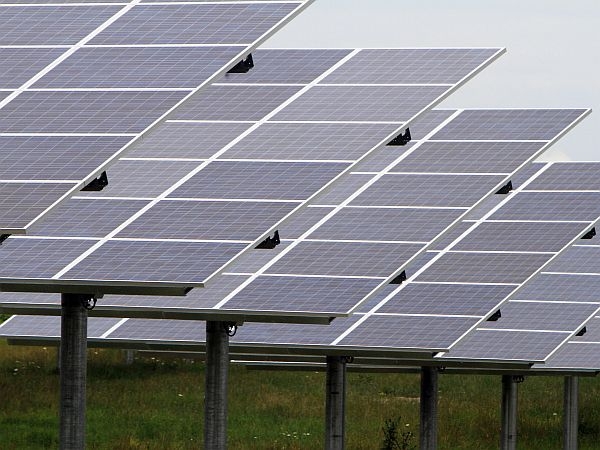
(Host) The Shumlin administration and legislative leaders have proposed a major overhaul in how Vermont encourages renewable energy.
As VPR’s John Dillon reports, the effort has touched off a debate about who actually benefits from Vermont’s existing clean power projects.
(Dillon) Governor Peter Shumlin wants the state to adopt what’s called a renewable portfolio standard. That means Vermont would mandate the amount of renewable energy utilities would have to buy.
The exact goals and when power companies would have to reach them is part of a legislative work-in-progress. But the push to an RPS -as the standard is known – is generating intense discussion in the Statehouse.
(Klein) "If the goal is to really reduce carbon footprint, statewide, region-wide, countrywide, worldwide, then the best way to go forward is actually with a portfolio standard."
(Dillon) East Montpelier Democrat Tony Klein chairs the House Natural Resources and Energy Committee. The panel is wrestling with a major shift in energy policy – from a voluntary, incentive system that encourages renewable development to one with a mandated standard.
Klein says the current system allows Vermont utilities that do have clean sources of power to sell "renewable credits" to companies that still pollute.
(Klein) "The problem with that program is two or three fold. One, we are being looked upon in increasing fashion by both the feds and other states that have an RPS as saying, ‘You know, this is not real. You can’t do this. You’re double-dipping.’"
(Dillon) Let’s step back for a moment for a quick explanation for how this works. When a utility sells renewable energy credits, it is actually selling the green attributes of the electricity generation. And those credits can then be used by other utilities to meet renewable requirements in their own states.
And once those credits are sold, the utility that sold them can no longer claim that it produced green power from that particular source. Kevin Jones is an energy policy expert at Vermont Law School. He’s not speaking for the law school, but he’s a strong critic of the current Vermont renewable policy, known as the "SPEED" program.
(Jones) "What it really does is actually increases Vermont’s carbon footprint because when you take a wind power project and remove the renewable energy credits and sell it out of state, you actually get the environmental attributes of the left-over power in the New England market, which is the coal, oil and nuclear power."
(Dillon) Jones says a mandated renewable portfolio standard would be more honest and more effective.
(Jones) "Just putting an RPS in place, even with modest goals, would be a huge step forward for Vermont and would remove a big black mark against Vermont, given that most environmental and energy officials outside of Vermont realize that the SPEED program is an illusion and an attempt for Vermont to have its cake and eat it, too."
(Dillon) But there’s another part of this debate, one that may hit utility ratepayers in their wallets. Remember that the renewable credits are sold. And utilities use the proceeds here at home to reduce the cost of the power. Robert Dostis is a vice president with Green Mountain Power.
(Dostis) "Because of our utilities’ ability to sell the renewable energy credits, the RECs, that are associated with the power to other states that have an RPS, that brings the cost down considerably for our customers. So we’re getting the ability to build these in-state renewable generation projects and all the benefits that come with that – the jobs, the economic development, etc. – while not increasing rates for customers because other states want to purchase those RECs."
(Dillon) And that’s one dilemma facing lawmakers as they try to strike the balance between controlling electricity costs and achieving real progress toward cleaner energy generation.
For VPR News, I’m John Dillon in Montpelier.